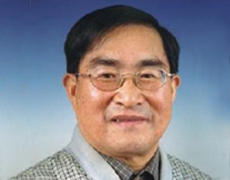
GUO Bailing
mathematics
GUO Boling
Professor Boling Guo was born in 1936 in Longmen town, Longyan county, Fujian Province, China. In 1958 after graduated from the Department of Mathematics, Fudan University he remained there as a mathematical teacher. In 1963 he was transferred to Beijing Institute of Applied Physics and Computational Mathematics (IAPCM). Now he is a researcher and Ph. D supervisor in IAPCM, an academician of Chinese Academy of Sciences.
Professor Boling Guo’s main research areas are qualitative and numerical study on the solutions, soliton solutions of nonlinear evolution equations, as well as infinite-dimensional dynamical systems. He investigated extensively and systematically a large amount of important nonlinear evolution equations arising from mechanics and physics and achieved deep mathematical theories on the solvability and uniquness of solutions with large initial values, regularity, asymptotic behavior and blow-up phenomena and other relative problems. He studied also a number of infinite-dimensional dynamical systems, and obtained many important results, such as the existence, regularity and estimates on the fractal dimension of global attractors, inertial manifolds and approximate inertial manifolds. He gave a new method of proving strongly compact attractors. He performed theoretical analysis and numerical calculation by discretization methods and got the structure and images of some attractors.
Professor Boling Guo published more than 400 papers in the journal articles and 12 monographs. He won the third prize of the National Natural Science Award in 1987, twice the first prize of Scientific and Technological Progress issued by the National Defense Science, Technology and Industry Committee in 1994 and 1998. He was a member of the Chinese Mathematics Council (1988-1995), an executive member and the vice chairman of the Beijing Mathematics Council (since 1996). He is also a member of several editorial boards of mathematical journals such as Partial Differential Equations, Journal of Computational Mathematics, Mathematic Study, Beijing Mathematics, etc.



